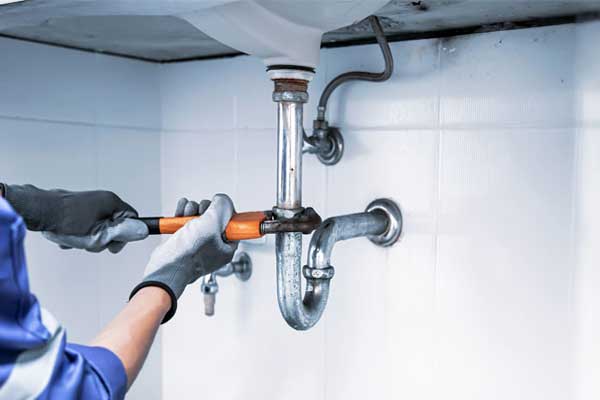Your Plumbing Affects Your Tap Water Quality
Other than local water supply, your plumbing has the biggest impact on tap water quality. Corroded and outdated plumbing systems release contaminants into the water. This is a natural effect of older pipes, and there is little you can do to correct the problem with spot repairs alone.

There are several ways you can improve your tap water quality regardless of the age of your pipes. The Repiping Professionals are available to examine your plumbing and determine if replacing your pipes is the best option. Contact us today for more information, or read on for more ways to improve tap water quality.
Always Follow Boil Orders
Boil orders are not uncommon in Los Angeles. It is important to follow boil orders when they arise and to be aware of them. Boil orders are issued when at least two water samples show contaminants. Boil orders may also be issued when water mains break. ABC7 in Los Angeles maintains a website informing citizens of current boil orders.
Following a boil order is simple. After running water from your tap, bring it to a boil on your stove. Allow it to continue boiling for three to five minutes before removing it from heat. Allow it to completely cool before drinking or cooking with the water.
Choose Cold Water Over Hot
You should always use cold water for drinking and cooking. Hot water contains more contaminants. As a general rule, hot water should only be used for washing and bathing. It is not suitable for consumption.
This is because the contaminants in pipes will dissolve more quickly in hot water. In addition, hot water tanks have metal parts that can become corroded and add to the contaminants in hot water. Even if you run your tap water through a filter, hot water will have more contaminants.
Add Equipment for Tap Water Quality
You can improve your tap water quality by purchasing and adding additional equipment to either the tap itself or the location where water comes into your home.
There are 4 main types of fixtures that can be added to improve tap water quality.
- Whole home water filtration systems
- Filters that attach to the tap
- Whole home water softeners
- Aerators on taps
- Switch to tankless water heaters with less metal
The biggest problem with whole home filtration systems or water softeners is that the water is still traveling through all of your pipes before coming out of the tap. If your pipes are corroded, they could be contaminating your tap water after the filter does its job.
Keep Your Plumbing Maintained
It is vital that you keep your plumbing maintained. If you notice corroded pipes, they should be replaced before they cause a leak. Maintaining your plumbing is vital because corroded pipes release contaminants into the tap water.
This doesn’t just include keeping your pipes clean and up to date. You also need to maintain your water heater and any of the above fixtures that you have added to your home. These fixtures can corrode and add to the poor water quality.
Hire The Repiping Professionals to Update Your Plumbing
The best way to improve tap water quality is to update your plumbing with new pipes. Repiping your home may be necessary if you have a home that was built prior to 1975, you probably have galvanized steel or brass pipes that should be replaced.
How often your pipes need to be replaced depends on the type of piping. As a general rule:
- Galvanized steel pipes need to be replaced after 20-50 years
- Brass pipes need to be replaced every 40-70 years
- Cast iron pipes need to be replaced every 75 to 100 years, but are rare
- Copper pipes last more than 50 years
The best choice is to have your house repiped with new copper plumbing that is resistant to corrosion. Repiping Professionals has the expertise to do the job right and within your budget. Contact us today for a free evaluation of your plumbing.
